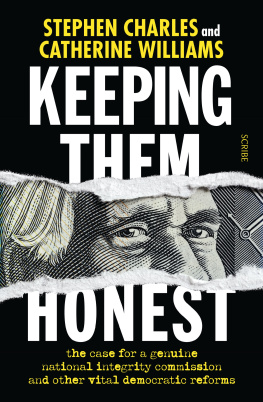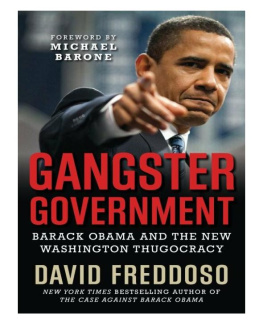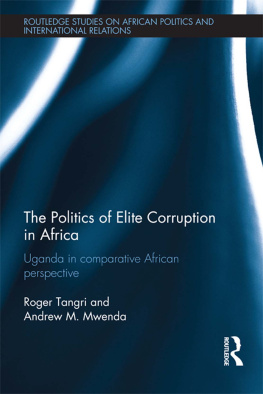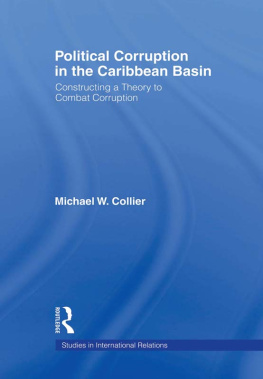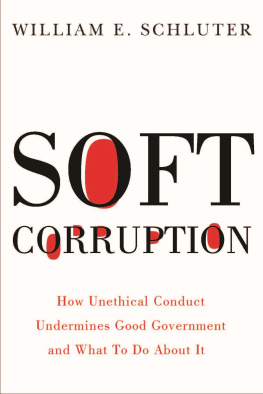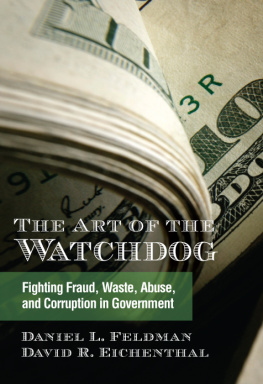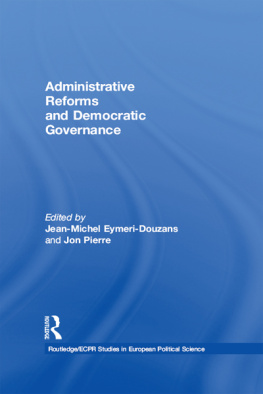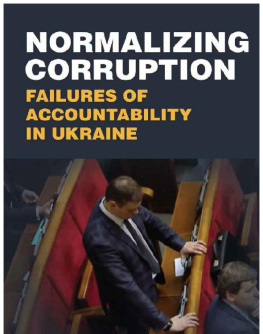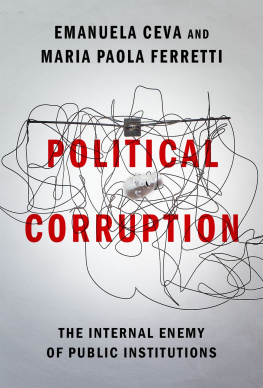
KEEPING THEM HONEST
After a distinguished career at the Victorian Bar and as a Judge of Appeal in the Supreme Court of Victoria, Stephen Charles AO, QC, is now a board member of the Accountable Round Table and the Centre for Public Integrity. He has been for many years a tireless advocate for the creation of a federal anti-corruption watchdog.
Catherine Williams is an adjunct research fellow in the School of Humanities and Social Sciences at La Trobe University, where she has lectured and tutored. She holds degrees in Arts and Law and a PhD from La Trobe, and is now research director of the Centre for Public Integrity.
Scribe Publications
1820 Edward St, Brunswick, Victoria 3056, Australia
2 John St, Clerkenwell, London, WC1N 2ES, United Kingdom
3754 Pleasant Ave, Suite 100, Minneapolis, Minnesota 55409, USA
Published by Scribe 2022
Copyright Stephen Charles and Catherine Williams 2022
All rights reserved. Without limiting the rights under copyright reserved above, no part of this publication may be reproduced, stored in or introduced into a retrieval system, or transmitted, in any form or by any means (electronic, mechanical, photocopying, recording or otherwise) without the prior written permission of the publishers of this book.
Scribe acknowledges Australias First Nations peoples as the traditional owners and custodians of this country, and we pay our respects to their elders, past and present.
978 1 922585 64 6 (paperback)
978 1 922586 43 8 (ebook)
Catalogue records for this book are available from the National Library of Australia.
scribepublications.com.au
CONTENTS
by Sir Gerard Brennan AC
Part I: The Long Road to a National Integrity Commission
1 : betrayal and cover-up
3 : the Independent Commission Against Corruption
4 : the Independent Broad-based Anti-corruption Commission
6 : competing design principles for a national integrity commission
Part II: The Case for Other Vital Democratic Reforms
10 : how to limit secret influence
11 : how to protect the integrity of elections
12 : how to reform the expenditure of public money
Appendix: : election commitments or spending decisions?
Foreword
by Sir Gerard Brennan AC, KBE,
former chief justice of the High Court of Australia
This is a disturbing book. It is meant to be. The authors have listed a series of corrupt activities charting a decline in the integrity of Australian public and political life. Corruption has flourished. At the Commonwealth level, there is evidence that decisions involving the expenditure of large amounts of money have been made to secure political advantage without complying with the value for money requirement of section 71 of the Public Governance, Performance and Accountability Act 2013. Sadly, the community has been rather tolerant of this decline. This book may enliven the community conscience and lead us to insist on integrity in public life.
In earlier times, when the community expected higher standards in public and political life, the political system itself provided some mechanism for controlling corruption. If some element of corruption was attributable to one political party, the opposing political party was eager to expose it. Exposure gave a political advantage, as it appealed to the communitys sense of integrity. Integrity was a political strength; it commanded community support, and it was embraced by leading politicians and career public servants. There were occasional lapses, but, as a system, it served the community well.
But integrity has been sapped by political ambition and by the seeking of party and personal benefits. Private interests have increasingly influenced political and administrative action. Legality has taken the place of morality in defining the permissible limits of political and administrative action. The decline in standards opens the way to corruption, and the absence of a political mechanism for alerting the community to corrupt conduct facilitates the concealing of corrupt practice.
Corruption can be stemmed if the community is made aware that public assets are being acquired improperly by private interests, or that public duties are being performed to benefit private interests improperly. This book describes attempts that have been made and opportunities that have been neglected for creating mechanisms that might expose corruption, identify its participants, and offer some prospect of remedy. The creation of such a mechanism is not a simple exercise.
The authors are alive to the risk that reputational damage to the persons or institutions involved in an inquiry may be inflicted unjustly by public and privileged hearings. They are conscious that great care is needed in determining the terms of reference under which an inquiry must function. Accordingly, the book reproduces the design principles for a national commission recommended by the National Integrity Committee (a group of retired judges).
In December 2018, 34 former judges wrote a letter to the prime minister expressing their support for the establishment of a national integrity commission with the power to hold public hearings. Regrettably, no legislative action has been taken. Instead, there has been a flow of political rhetoric aimed at securing success at the forthcoming poll a result that would deny the prospect of any substantial Commonwealth reform.
Judges and former judges do not usually enter the public political arena. The judiciary does not have a political agenda. Its function is to resolve disputed facts and to apply the law to the facts as found, unaffected by political influence. Lest intervention on political issues might seem inconsistent with political independence, even former judges usually abstain from political comment. But corruption that erodes honest administration and the disregard of the rule of law in the pursuit of political power are not issues about which former judges must or should be silent. They are issues that affect the social health of the community.
The authors, a distinguished former appellate judge and the research director at the Centre for Public Integrity, have shown the extent of maladministration in our public affairs. We are indebted to them for a book that is a timely reminder of the communitys need for higher moral standards and for more publicity, transparency, legitimacy, and integrity in the conduct of our public affairs.
Acknowledgements
Three of the chapters in this book chapters 10, 11, and 12, comprising Part II were written by Dr Catherine Williams, the principal research officer of the Centre for Public Integrity. They reveal the dark side of Australias political system, and provide additional reasons why a national integrity commission is needed.
Chapter 10 suggests solutions to the problems raised by political donations and the influence that can be brought to bear by political donors, especially in the form of hidden money that the major parties rely on; to the threats posed by unregulated lobbying and the revolving door between lobbyists and former ministers; and to the lack of transparency in ministers meetings and dealings.
Chapter 11 deals with the need for caps on electoral expenditure, and for truth in political advertising.
Chapter 12 deals with the role of the auditor-general and limitations on the Australian National Audit Offices mandate and ability to audit expenditure by the executive on matters such as grants, and the potential for a government to misuse grants as a means of pork-barrelling.
Each of these chapters provides a significant contribution to knowledge about what goes on behind the scenes between elections, and about the constitutional and statutory limitations on the executives ability to use and misuse taxpayers money that are regularly sidestepped. I am very grateful to Dr Williams for taking up the challenge to write these chapters, a consolidation and elaboration of her work at the Centre for Public Integrity, and in joining me in co-authorship of this book.
Next page
